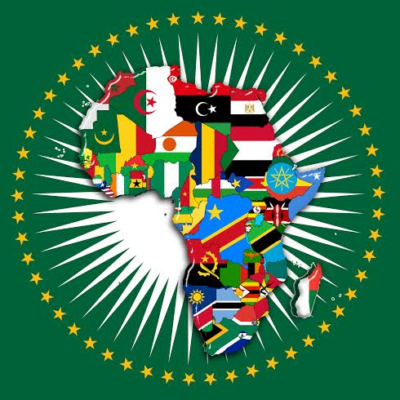The African Union day celebration is a continental holiday that acknowledges the formation of the Organization of African unity, the erstwhile organization formed by leaders like Haile Selassie of Ethiopia, Gamal Abdul Nasser of Egypt and our very own Kwame Nkrumah of Ghana on 25th May 1963. Formed to mainly address issues of the day like colonialism and white minority rule in Africa, the organization’s set up and objectives became obsolete as the years went by, hence the formation of its offshoot, the African Union which was officially launched on the 9th of July 2002. This new organization arrived with the huge expectation of being aptly structured to face the post-colonial era issues like intra-state conflicts and provision of peace and stability in affected areas. It also had a mounting expectations of rectifying the wrongs of its progenitor, the OAU like its criticism for being a ‘dictator’s club’ which was impotent during crucial events like the civil wars in Angola and Nigeria and the alleged human rights violations in Uganda under Idi Amin.
To some extent the African Union has been able to attain certain achievements that are consistent with some of the core objectives of the organization like the promotion of peace and stability all over the continent. This objective was achieved through the deployment of forces from member states to Dafur, Sudan and to Somalia for peace keeping purposes. This at the very least broke a barrier that has been characterized as being a significant failure of the OAU. The African Union has also over the years proved its commitment to promoting democratic principles and institutions by successfully ensuring that the Faure Gnassingbe inspired coup d’etat in 2005 was put on hiatus till Eyadema Gnassingbe’s son was given some legitimacy through his election as president by the people of Togo.
Conversely, the African Union has also fallen short in delivering its mandates as an organization on quite a number of instances. At the time of the Libyan crises during the regime of Muammar Gadafi, a former chairperson of the organization, there was an adhoc committee formed by the Union to mediate the crises. The committee, made up of 5 presidents were prevented from going to Libya to meet Gadafi after the North Atlantic Treaty Organization (NATO) imposed a no fly zone in Libya and subsequently invaded the country. This move was very much dissented by the African Union as an organization but it was completely powerless when these NATO-led military forces invaded the organization’s jurisdiction with impudence. Also, during the period of the AU’s protest to the NATO-led military invasion, certain individual member states like Botswana, Zambia and Gabon took a dissenting view and supported the invasion by these foreign powers. This again questioned the solidarity of member states in the union and to some extent the integrity of the organization since it asserts that it comprises of all 54 countries on the face of the continent.
Perhaps the most glaring objective that has eluded the African Union is the political unification of the continent. An idea first espoused in African circles by our nation’s first president, this idea divided our continent into progressives and incrementalists, the genesis of the Casablanca and Monrovia groups respectively. After deliberations and shifts in global politics, the Monrovia group triumphed and crafted the Africa’s future to suit their preference and style while the progressive leaders like Kwame Nkrumah and his ilk faced political extinction. The issue resurfaced over 40 years after the idea was first proposed and a general assembly meeting was held in Accra for deliberations in 2007, the year of our Golden jubilee celebration. The deliberations were stemmed from a 2006 study on the prospects of a Union Government and it proposed various policies which portended the successful end to the African Union project. Leaders like Abdoulaye Wade of Senegal and Muammar Gaddafi of Libya cheerled the renaissance of the Casablanca group’s ideology by proposing the formation of a Union army among other progressive policies. Robert Mugabe of Zimbabwe and South Africa’s Thabo Mbeki however espoused the Morovian group’s ideas of incrementalism. A committee was then set up to research on how the idea of a Union government and how it would affect the sovereignty of the member states. Fast forward till 2018 and the idea is still treated as more of an utopian concept than an actually plausible one by African leaders especially from countries with larger economies. The conundrum here is that is Africa going to continue going by the ideals of the Monrovia group and maintain the status quo of poverty and over dependence on foreign aid or follow through with the most conspicuous objective of the African Union; that is achieving political unity across the African continent.
As citizens of this great continent it is highly imperative that we involve ourselves more on this potentially monumental project since we are the people it greatly affects. Through our persistent lobbying and demands for change by our respective governments, we could easily achieve this objective and face our challenges as a unified body through a Union government. As we celebrate this day as citizens of Africa the onus remains more on us than our leaders to determine the future we want for ourselves and our generations to come. Also, it is absolutely important that we make our participation this discourse of political unity count by amicably cooperating with each other and policy experts to craft a political system that would be salutary and more importantly reflect the African personality and culture. A renaissance of this pan African objective by we the citizens would portend the end of the monopolized power of the political elite over the continent and usher in a true definition of a government of the people, by the people and for the people.
Adam Zig-naa Abudulai
National service personnel
Savelugu senior high school
Savelugu

